When technology accelerates
A survey of more than 1,500 students of Banking University of Ho Chi Minh City published in October 2025 showed that search engines, social networks and school websites are the three most important information channels that students and parents use when learning about admissions in 2025. However, candidates' search behavior has changed significantly and there is differentiation between groups of candidates.
Associate Professor Dr. Nguyen Van Thuy - Head of Admissions and Communications Department, Banking University of Ho Chi Minh City said that according to the survey, good students are often interested in new admission methods such as competency assessment exams or direct admission, while the average group prioritizes considering academic records. That shows that it is impossible to apply a common message to all subjects.
“Admission communication activities are no longer simply about providing information, but have become a comprehensive strategy, requiring flexibility, understanding and application of breakthrough technology,” Associate Professor Thuy emphasized. He believes that communication campaigns for excellent students need to focus on talent programs, scholarships, and research opportunities; while for the average group, the emphasis should be on stability and practical job opportunities.
Along with the change in search behavior, Gen Z, the current main group of candidates, also has a completely new mindset. They choose their major based on personal interests and ability to adapt to society, instead of just chasing scores. The trend of "choosing to study because of passion" is becoming a reminder for schools to change their thinking and communication messages: Must be close, authentic and linked to practical values.
If in the past, admissions consulting was associated with direct consultation sessions at high schools, now technology has opened up a completely new "playground". TikTok, Instagram Reels, YouTube Shorts have become strategic "weapons", helping schools reach candidates in the first few seconds - where the story must be concise, vivid and impressive. "The year 2025 will witness the explosion of technology in admissions communication. Schools need to 'know how to tell stories' in just a few seconds, concisely and creatively", Associate Professor, Dr. Nguyen Van Thuy shared.
According to university admissions experts, in the context of global competition for students and lecturers, along with the "saturation" of marketing content on social networks, universities are having to reinvent themselves. But along with that challenge comes a great opportunity: University autonomy allows schools to be creative, position their own brands and apply technology flexibly, without being bound by rigid regulations.
The development of AI, Big Data and multi-platform communication is not just a tool, but the key to help schools better understand learners - from needs, behaviors, to career expectations. This is the foundation for building a brand story that is authentic, emotional and influential.
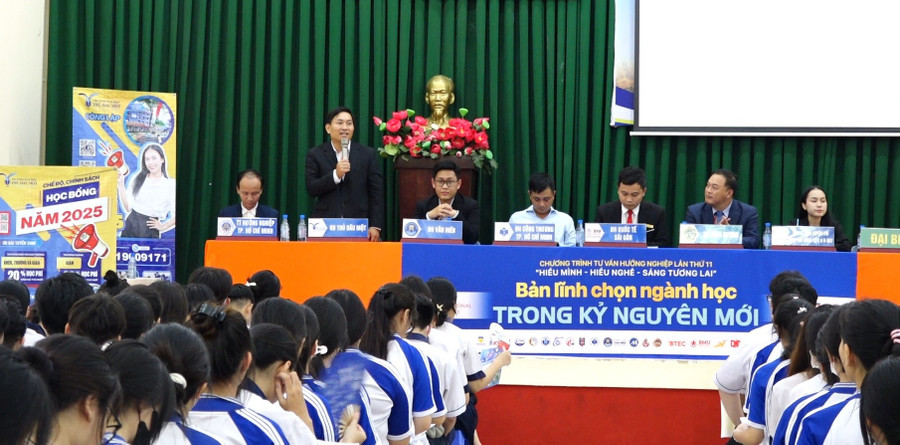
Support tools, cannot replace people
Going beyond content delivery, AI and Big Data are redefining how schools understand and serve their learners. AI helps analyze candidates’ online behavior, predict enrollment trends, identify potential groups, and even optimize promotional campaigns by geography or interest level.
In May 2025, Ho Chi Minh City University of Industry and Trade (HUIT) launched HUIT Chatbot AI, marking an important step in the journey to build a smart university. The application integrates large language models (LLMs) and modern information retrieval technology (RAG), operates 24/7 on the website, Zalo, Facebook Messenger, supports automatic consultation on tuition fees, majors, scholarships, student life...
According to MSc. Pham Thai Son - Director of HUIT's Admissions and Communications Center, the chatbot has initially brought certain effectiveness because it creates a new experience for students. In addition to the chatbot, the school is taking advantage of social media data analysis to target areas with many interested candidates. "If a high school has many students interacting with #HUIT on Facebook, we will send a team of consultants to the site. If there is less interest, we will reduce staff. Technology helps save resources while still being effective."
However, according to Mr. Son, parents do not really trust AI. Chatbots mainly support basic information such as how to fill out an application, admission scores or the number of majors. The decision to choose a major still requires direct advice from a human team.
Not only Ho Chi Minh City University of Industry and Trade, many other universities have also started applying AI in consulting and analyzing admission data, allowing for more accurate predictions about learner needs and behaviors. However, representatives of many schools believe that the human factor is still considered the center of all activities.
Dr. Le Thi Thanh Mai - former Head of Student Affairs Department, Ho Chi Minh City National University, explained that although AI and digital technology are changing dramatically, effective recruitment communication must be based on three pillars: A team of consultants and career guidance experts; technology application; and a communication strategy to reach the right audience.
According to her, students can now easily use AI to search for information, but the results are not always accurate. Therefore, the role of a well-trained consulting team is more important than ever. “Many homeroom teachers or career counselors have not been trained in digital skills and AI knowledge, leading to outdated or misleading advice,” said Ms. Mai, who also proposed training in digital skills and AI capacity for the recruitment and career counseling force.
Dr. Le Thi Thanh Mai said that the admissions consulting team at universities needs to be trained in 5 main groups of skills including: Information digitization skills to select and process data for consulting work; career orientation AI skills to analyze the interests, abilities, and personalities of students; AI analysis and forecasting skills to identify industry and labor market trends; information personalization skills to help customize consulting content for each individual; pedagogical capacity in consulting to communicate and support more effectively. She affirmed that improving AI capacity for the consulting team is a strategic step, helping schools adapt to digital transformation in higher education .
Source: https://giaoducthoidai.vn/truyen-thong-trong-tuyen-sinh-dai-hoc-cuoc-dua-ke-chuyen-bang-cong-nghe-post755260.html






![[Photo] Opening of the 14th Conference of the 13th Party Central Committee](https://vphoto.vietnam.vn/thumb/1200x675/vietnam/resource/IMAGE/2025/11/05/1762310995216_a5-bnd-5742-5255-jpg.webp)

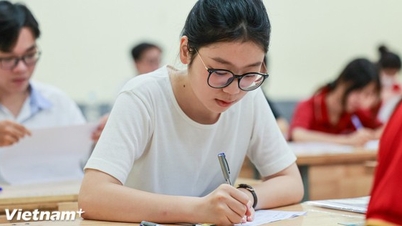

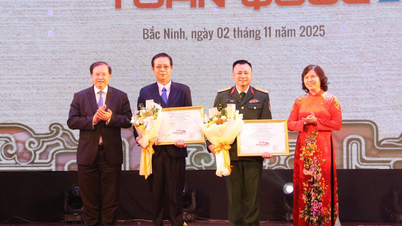

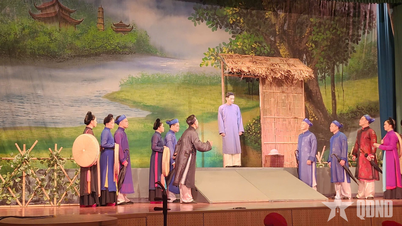
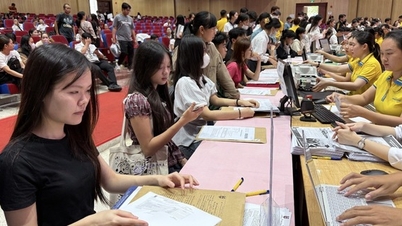

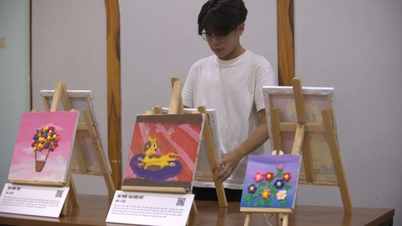










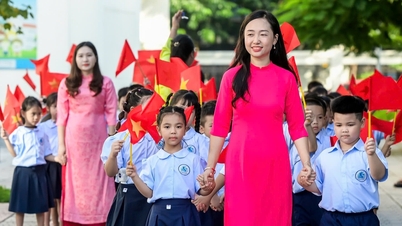






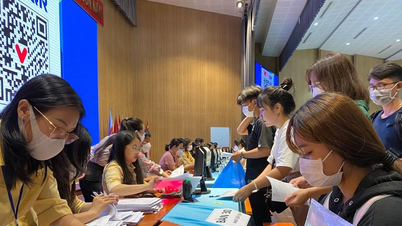
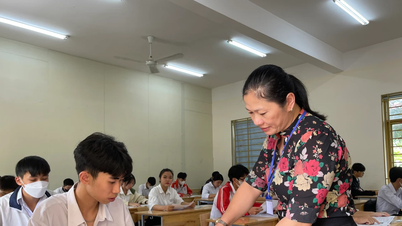

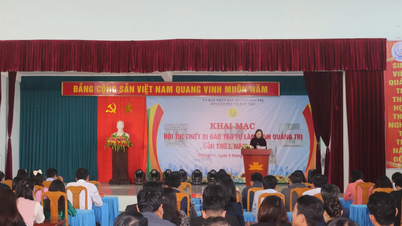



![[Photo] Panorama of the Patriotic Emulation Congress of Nhan Dan Newspaper for the period 2025-2030](https://vphoto.vietnam.vn/thumb/1200x675/vietnam/resource/IMAGE/2025/11/04/1762252775462_ndo_br_dhthiduayeuncbaond-6125-jpg.webp)































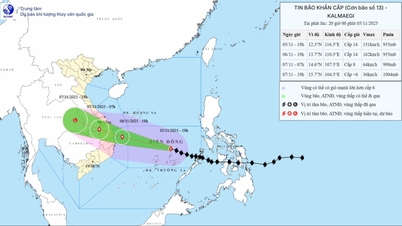















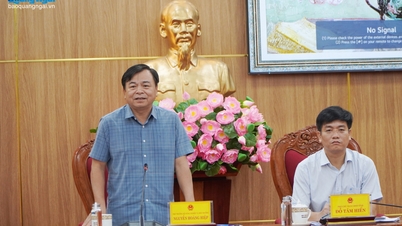


















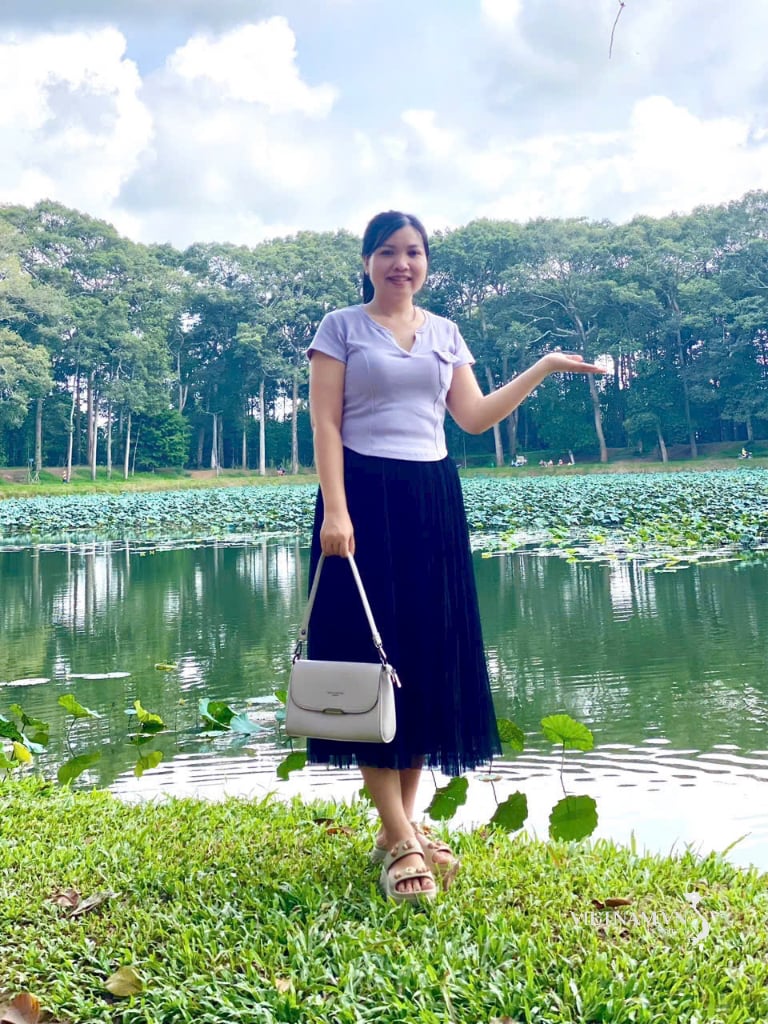


Comment (0)